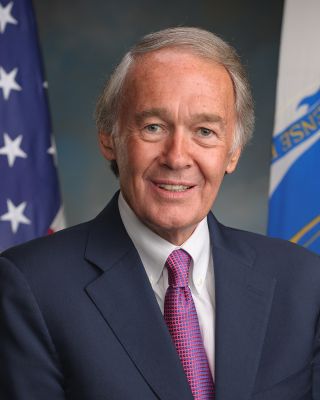FCC Moderates Major Broadcast KidVid Revamp
WASHINGTON — When Sen. Ed Markey. author of the Children’s Television Act and critic of media deregulation, leads a press release by saying he is pleased with an FCC item deregulating KidVid rules, it’s news.
The Massachusetts Democrat was reacting to the Federal Communications Commission’s decision not to eliminate some of the baseline requirements, as it suggested it might, while still giving broadcasters more wiggle room.

Markey was reacting to the release of the commission’s Report and Order allowing additional flexibility in how broadcasters program their mandatory three hours of educational and informational (E/I) children’s programming. The full commission is scheduled to vote on the item, and almost certainly approve it, on July 10.
Markey still had problems with parts of the order, but the fact that he led his comment on the release with, “I am pleased that the FCC is not moving forward with its initial proposal to dismantle the children’s television rules,” was telling, even if it was praise with a faint damn.
The operative phrase in the FCC item was “substantial majority.”
The changes had been billed as modest by the item’s principal architect, Republican commissioner Michael O’Rielly, which was a bit of a course change from the proposal the FCC voted on last June.
At that time, the agency had tentatively concluded that E/I programs no longer must be at least 30 minutes long; that stations with multicast channels could air that E/I programming on a digital subchannel instead of the primary channel; and that those digital subchannels no longer have their own three-hour-per-week E/I requirement.
Multichannel Newsletter
The smarter way to stay on top of the multichannel video marketplace. Sign up below.
Instead, the report and order requires broadcasters to continue to air the “substantial majority” of E/I programming in 30-minute, regularly scheduled blocks on their primary channel, while allowing a “limited” amount of programming to be short-form (PSAs and interstitials) and to be aired on a digital subchannel.
The order did eliminate the requirement that free multicast channels also air three hours of E/I programming per week. It also expanded the window in which E/I programming meets the three-hour requirement, from 7 a.m.-10 p.m. to 6 a.m.-10 p.m., and will no longer require broadcasters to reschedule E/I programming pre-empted for a local news or programming special.
O’Rielly himself had suggested the rules might need to go away altogether, given that some scholars thought them to be unconstitutional content-based restrictions on speech. But that fight is being left for another day.
Both O’Rielly and FCC chairman Ajit Pai have talked about needing to deregulate the kids’ rules, given the changes in how children consume video: online, at all hours, in short and long bites and on a proliferation of other outlets, the same arguments being made for other forms of broadcast deregulation.
They also recognized how broadcast-only households over-index for poor and minority kids and the newly-released item makes that point.
Broadcasters took their half a loaf with equanimity. “While NAB believes the record supports even further relief from KidVid rules, we appreciate the flexibility these revised rules will provide to broadcasters to better serve children, parents, and our local communities,” the National Association of Broadcasters said.
Contributing editor John Eggerton has been an editor and/or writer on media regulation, legislation and policy for over four decades, including covering the FCC, FTC, Congress, the major media trade associations, and the federal courts. In addition to Multichannel News and Broadcasting + Cable, his work has appeared in Radio World, TV Technology, TV Fax, This Week in Consumer Electronics, Variety and the Encyclopedia Britannica.

